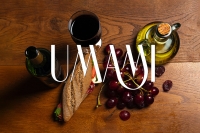Organic wines
For some time now, and steadily, organic wines have been gaining ground in the national and international markets. The quality of these wines and the sustainability of the vineyards are the main reason for this change in trend. At Bodegas Castaño we have been aware of the added value that this agriculture brings for the environment and in 2023 our vineyards will become 100% organic.
What is organic agriculture?
For the vineyards to be able to obtain the denomination of organic cultivation, they must pass an initial control of about three years, during this time, the soil is cleaned of any possible non-organic residue. From there, the use of non-aggressive products for the environment such as copper and sulfur are allowed for the treatment against fungi such as mildew, oidium and to prevent the appearance of botrytis.
The main difference in this type of tillage with the traditional one is in the limits of sulfur addition, which in this case is less. In addition, the use of chemicals such as fertilizers and pesticides are also eliminated. Emphasizing sustainability, in order to preserve the environment, increasing the fertility of the land and the supply of food with its natural properties.
One of the external factors that largely determines an exceptional organic vineyard is the climate. Fortunately, the low rainfall in the area of southeastern Spain, where we find ourselves, favors that there is no excess moisture and therefore danger of fungi. In the same way, the high insolation rates with about 3000 hours of sunshine, together with a limestone and stony soil that accumulates this heat, are the perfect compendium for a good balance of water, light and temperature. This gives us vineyards in a perfect sanitary state and without chemical residues.
How is an organic wine made?
Although the steps to be taken in the process of making these wines is similar to a conventional quality wine, there are some guidelines and standards for their certification.
Some of the rules for making this type of wine are:
The transport of the grapes to the winery must be the same day of its harvest, avoiding any alteration, using stackable boxes or shallow trailers and covered with a canvas so that the grapes do not come into contact with the metal.
Pressing systems that do not harm the bunch (skin, seeds and stalks)
Spontaneous fermentation naturally in the grape must. The storage and conservation of the grape must in the first stages of the production and later of the wine should be carried out in stainless steel tanks, wood, coated concrete, or others, as long as they meet the conditions of food use.
How to identify an organic wine?
To identify these wines, on the back label of each bottle, there is a stamp that certifies that this wine has been made under the quality controls of the Organic Agriculture Committee of the different Autonomous Communities, as well as by the European Union.

The quality of these wines is increasingly recognized. The traditional production methods used bring with them wines with more natural aromas and flavors that are increasingly suited to consumer’s taste. Their demand at the national level is growing from year to year, but is still low compared to international markets where they are even more valued.
All our commitment and enthusiasm is now to continue growing and provide our brands with this warranty, which not only implies an increase in the quality of the wines, but also a commitment to the sustainable future of our vineyards and their surroundings, where our native variety monastrell will bear greater responsibility.
This added value for Bodegas Castaño, sooner or later will be part of its identity seal, becoming in the next few years a 100% organic winery.








 Whatsapp
Whatsapp